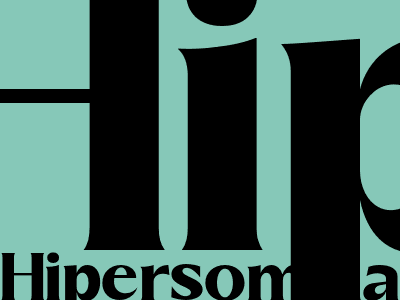Hipersomnia: A Comprehensive Look
What is Hipersomnia?
Hipersomnia, also known as excessive daytime sleepiness (EDS), is a sleep disorder characterized by persistent daytime drowsiness and an inability to stay awake during the day, despite getting enough sleep at night.
People with hipersomnia may experience difficulty waking up in the morning, even after a full night's sleep, and may feel excessively tired throughout the day. They may also have difficulty concentrating, paying attention, and making decisions.
Types of Hipersomnia
There are two main types of hipersomnia: primary hipersomnia and secondary hipersomnia.
- Primary hipersomnia is a lifelong condition that is not caused by another underlying medical condition.
- Secondary hipersomnia is caused by another underlying medical condition, such as:
- Narcolepsy
- Obstructive sleep apnea
- Restless legs syndrome
- Medications
- Alcoholism
- Depression
Symptoms of Hipersomnia
The primary symptom of hipersomnia is excessive daytime sleepiness (EDS). Other symptoms may include:
- Difficulty waking up in the morning
- Feeling tired throughout the day
- Difficulty concentrating
- Poor memory
- Slowed reaction times
- Irritability
- Headaches
- Weight gain
Causes of Hipersomnia
The exact cause of primary hipersomnia is unknown. However, it is thought to be caused by a problem with the brain's sleep-wake cycle.
Secondary hipersomnia is caused by an underlying medical condition that interferes with sleep. These conditions can include:
- Narcolepsy
- Obstructive sleep apnea
- Restless legs syndrome
- Medications
- Alcoholism
- Depression
Diagnosis of Hipersomnia
Hipersomnia is diagnosed based on a patient's symptoms and a physical examination. The doctor may also order tests to rule out other medical conditions that may be causing the symptoms.
These tests may include:
- Polysomnography (PSG): A sleep study that records brain activity, eye movements, muscle activity, and breathing during sleep.
- Multiple sleep latency test (MSLT): A test that measures how quickly a person falls asleep during the day.
- Blood tests: To rule out other medical conditions.
Treatment of Hipersomnia
The treatment of hipersomnia depends on the underlying cause. If the hipersomnia is caused by an underlying medical condition, treating that condition will usually resolve the hipersomnia.
If the hipersomnia is primary, treatment may include:
- Medications: Stimulant medications, such as modafinil or armodafinil, can help to improve wakefulness during the day.
- Behavioral therapy: Behavioral therapy can help people with hipersomnia to develop healthy sleep habits.
- Lifestyle changes: Lifestyle changes, such as getting regular exercise and avoiding caffeine and alcohol, can also help to improve sleep.

Comments